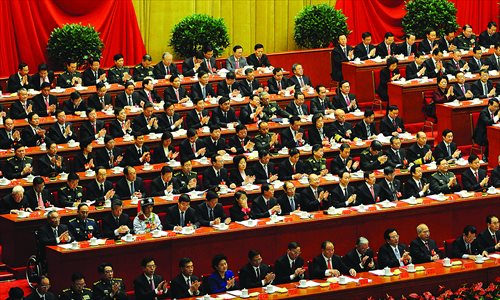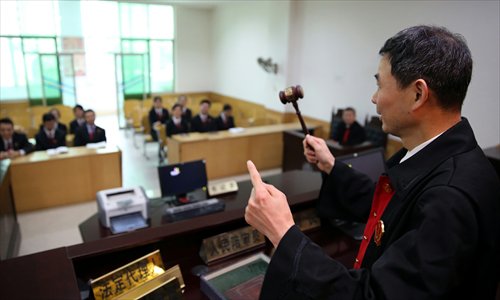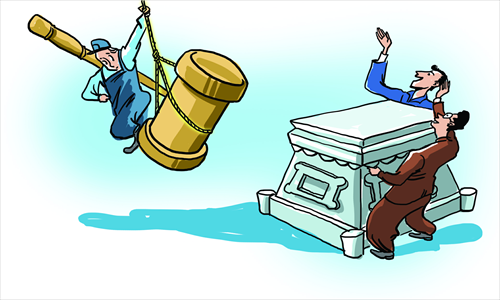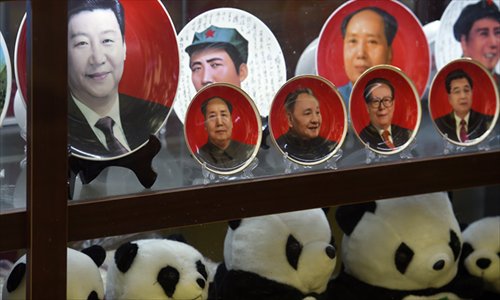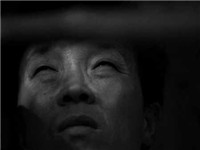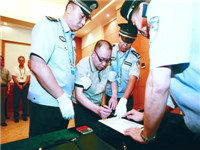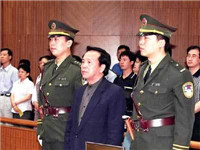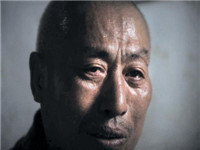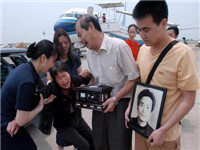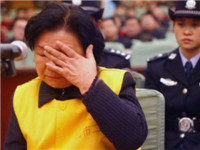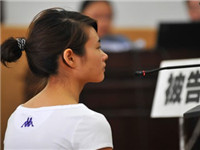| Zhi Zhenfeng, associate research fellow at the Institute of Law, Chinese Academy of Social Sciences The logic of Chinese politics requires an integration of the CPC's leadership and the rule of law. The CPC, as an omnipotent mechanism, is responsible for making laws, including the Constitution, accord with the cardinal interests of most people. Everyone, including the top CPC leaders and the CPC organs, must comply with the law. The CPC leadership and the rule of law make each other possible. |
| Tom Zwart, professor of Human Rights at Utrecht University and director of the Netherlands School of Human Rights Research |
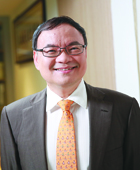 | Liu Hong, director of Nanyang Center for Public Administration at Nanyang Technological University |
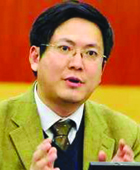 | Gong Weibin, director of Research Center of Social Governance at the Chinese Academy of Governance |
| Zhang Xiaoling, professor and director of the Human Rights Studies Center of the Party School of the CPC Central Committee China's establishment of the rule of law complies with a progressive trajectory instead of making great leaps forward to the very end. The emphatic integration of the rule of law and human rights indicates that China's top leadership will touch the core of this endeavor. |
| Shaun Breslin, director of the Centre for the Study of Globalisation and Regionalisation, University of Warwick |
| Jacques deLisle, Stephen A. Cozen professor of law and professor of political science at the University of Pennsylvania Law School |
| She, 39, was cleared of a wrongful murder conviction after serving 11 of a 15-year prison sentence in 2005. The Jingshan County People's Court overturned its 1998 guilty verdict against She, charged with killing his wife, after she reappeared in public seven years later. He was awarded 700,000 yuan ($113,830) as compensation from the State. She’s case sparked public awareness for the need of a judicial oversight system to prevent such miscarriages of justice. |
| Billionaire Lai Changxing was sentenced to life for smuggling and bribery in 2012 following a 12-year extradition process as he sought asylum in Canada. Dubbed the “Yuanhua Smuggling Case” in media, the trial marked an end to the successful repatriation of who was once described as China’s most wanted economic criminal. |
| Cheng Kejie, former vice-chairman of the National People's Congress Standing Committee, was executed on corruption bribery in 2000, the first high-ranking leader to be given the death penalty for corruption since 1949. The Beijing No.1 Intermediate People's Court announced the sentence on July 31, 2000, a verdict approved by the Supreme People's Court on September 7 that year. The judgment embodied the government’s commitment to Constitutional principle that “the law applies equally to all citizens.” |
| In another overturned murder conviction, Zhao Zuohai, 57, was released in 2010 after serving 11 years in jail because his alleged victim was found to be alive. The case resulted in China’s adoption of the exclusionary rule, which holds that evidence obtained through coercion or other illegal means is inadmissible in a court of law. Zhao was detained in 1999 on charges of murdering a fellow resident of Zhaolou village in Zhecheng county. The Henan Provincial Higher People's Court cleared Zhao of the wrongful conviction in May of 2010. Zhao was awarded 650,000 ($105,300) in compensation. According to the State Compensation Law, compensation is calculated according to the average daily salary of a State employee in the previous year. |
| Amid the state of emergency during the SARS epidemic, China passed a piece of legislation faster than any other in its history. The Regulation of Preparedness for and Response to Emergency Public Health Hazards was put into effect on May 9, 2003 – only 25 days after after it was conceived. Health officials in Guangdong Province detected the first SARS case in November 2002. However little action was taken, resulting in its spread to over 20 provinces and cities, including Beijing, causing 18 deaths. Zhang Wenkang, China’s health minister and Meng Xuenong, mayor of Beijing, were sacked on April 20, 2003 as a result of the mismanagement of the outbreak. |
| Milk tainted with melamine that resulted in six infant deaths and an estimated 300,000 adverse events across China in 2008 proved to be the impetus needed to pass the nation’s Food Safety Law. The milk was eventually traced back to its manufacturer, the Sanlu Group, followed by nationwide recalls. Eight months after the scandal, China passed its Food Safety Law, which had already been in draft form for five years. |
| Milk tainted with melamine that resulted in six infant deaths and an estimated 300,000 adverse events across China in 2008 proved to be the impetus needed to pass the nation’s Food Safety Law. The milk was eventually traced back to its manufacturer, the Sanlu Group, followed by nationwide recalls. Eight months after the scandal, China passed its Food Safety Law, which had already been in draft form for five years. |
| Billionaire Wu Ying was granted a suspended death sentence in 2012 for illegal fund raising for her enterprise, a case that sparked public debate over the abolishment of death penalty punishment for economic crimes. Wu, founder of the Bense Holding Group and previously one of China’s richest female entrepreneurs, was sentenced to death in 2009 for cheating some 380 million yuan ($60.2 million) out of investors through private lending means. She was 28 at the time. The Supreme Court repealed the decision in 2012, and sentenced her to death with a two-year reprieve (the sentence has been commuted to life in prison). The case also solicited public criticism against the legal system, arguing it deals with the private sector much more severely than corrupt officials. |
| Deng Yujiao, 21, was cleared of murder charges in 2009 after she had stabbed a local official to death who she said attempted to rape her. The hotel waitress was arrested after killing Deng Guida, a township commerce official, who had allegedly sought sexual services at the hotel. Deng Yujiao was found guilty, but was able to prove her case of self-defense and spared the death penalty. The case highlighted the corruption and immorality of officials. |
| The long-established practice of reeducation through labor was abolished in the wake of the Tang Hui case. Tang was sentenced to reeducated through labor in 2012 due to her persistent petitioning for justice for her 11-year-old daughter, who was raped and forced into prostitution in 2006. Tang’s sentence on August 2, 2012 was overturned only eight days later due to pressure from the public. The National People's Congress ended the reeducation through labor system, which had been implemented for more than 50 years, on December 28, 2013. |
Provisional law
Common Program of the Chinese People's Political Consultative Conference was issued on September 21, acting as a provisional constitution.
First Constitution
The first Constitution of new China was passed during the First Plenary Session of the First National People's Congress on September 20.
Signal from Deng
The recognized starting point for “rule of law” legislation occurred during Deng Xiaoping’s address at a central working conference during the third plenary session of the 11th Central Committee of the Communist Party of China.“To ensure people's democracy, we should strengthen the rule of law,” said Deng. During the plenary session, officials proposed a 16-character guideline for new legislation: “There must be laws to go by, the laws must be observed and strictly enforced, and lawbreakers must be prosecuted.”
Framework established
The fourth revision of China’s Constitution based on a previous version enacted in 1954 was adopted on December 4, 1982, laying a solid foundation for China’s legal construction in new era. Fundamental laws such as the General Principle of Civil Law, Administrative Procedural Law, Labor Contract Law, Property Law, Corporation Law, Enterprise Bankruptcy Law, were passed, all of which provided the necessary framework to implement China’s reform and opening-up policy.
Not mixing words
The 15th National Congress of the Communist Party of China decided to make “rule of law” a fundamental strategy. It was during this congress that the phrase “rule by law” was changed to “rule of law”.
New addition
“Rule of law” was written into the Constitution.
Goal for society
During the 16th National Congress of the Communist Party of China, “the fundamental strategy of ‘rule of law’ being fully implemented” was treated as “the important goal of building well-off society in an all-around way.”
Human rights acknowledged
“The State respects and safeguards human rights” was written into the Constitution.
‘With Chinese characteristics’
Wu Bangguo, then chairman of the NPC Standing Committee, announced that the “Socialist legal system with Chinese characteristics has been formed.”
Rules redefined
During the 18th National Congress of the Communist Party of China, the role of rule of law was redefined as “the fundamental way to rule the State and deal with politics.”
Spurred development
During the third plenary session of the 18th Central Committee of the Chinese Communist Party, “promoting the construction of rule of law” became the main focus of comprehensively deepening reforms and opening-up.
Advancing forward
During the fourth plenary session of the 18th Central Committee of the Chinese Communist Party, the CPC Central Committee's decision on major issues concerning comprehensively advancing rule of law was passed.
+ -

